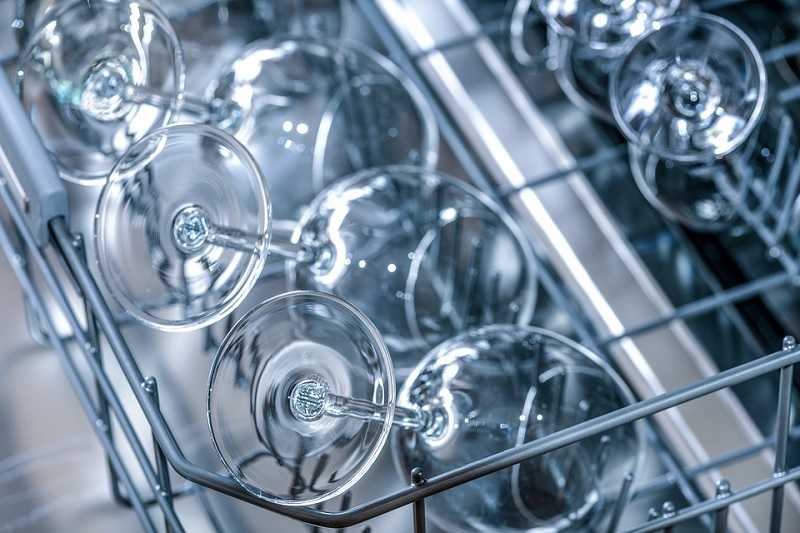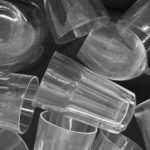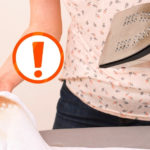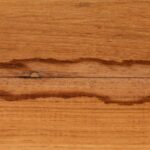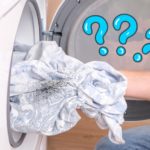You’re tired of opening your dishwasher to find your glasses smeared in white marks. I know, I feel you.
All us dishwasher-users from areas with hard water do, but what exactly are these stains, what is the right way to remove them and how do you prevent them?
What Are the White Marks on Your Glassware?
High levels of magnesium and calcium in the dishwasher water can cause limescale build-up which show up as marks on your glassware.
The marks don’t mean your glasses are ‘dirty’ or unhygienic, so you can use them normally.
There are things you can do to minimise the chances of your dishwasher leaving marks on your glasses in the future.
However, if you’ve left them like this for too long, you won’t be able to undo the damage. Therefore, it’s best to treat cloudy glasses like you would stains—treat them immediately.
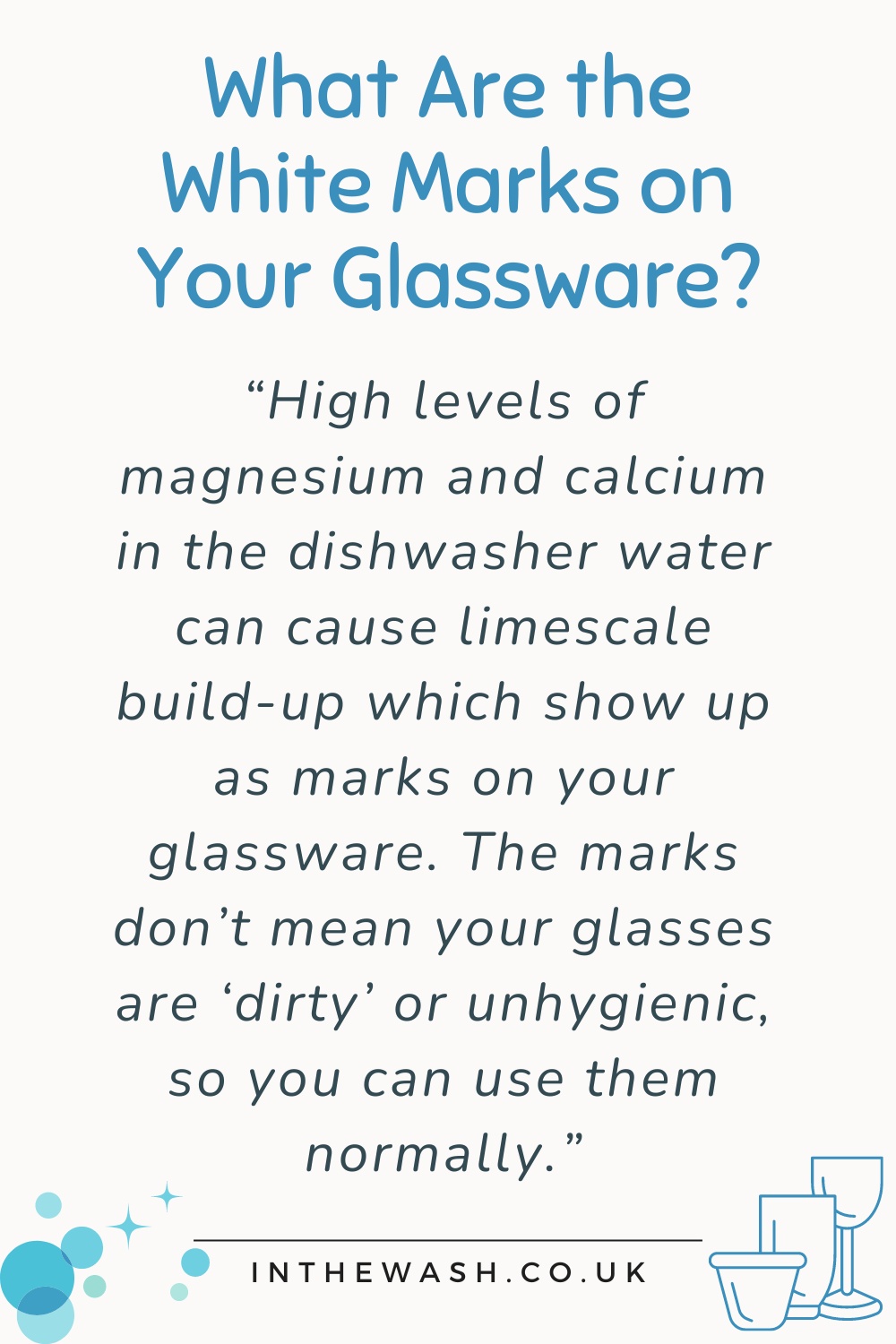
How to Get Dishwasher Marks Off Glasses
There are a few different ways to remove the cloudy marks your dishwasher has left on your glasses. Check out the methods below.
Method 1: Cleaning by hand with lemon juice or white vinegar
As lemon juice is a natural acid, it can work wonders when it comes to removing mineral deposits.
All you have to do is pour some lemon juice onto a cloth and clean the glass as you would with a sponge if you were washing by hand.
You can also use white vinegar to achieve similar results. If the stains still don’t seem to be moving, try adding the lemon juice to some salt to create a paste and dip your cloth in and try the same method again.
Method 2: Using vinegar in the dishwasher
In this method, you put a dishwasher-safe bowl on the bottom rack of your dishwasher filled with white vinegar. Put your cloudy glasses on the top shelf and then run a dishwasher cycle without detergent.
Method 3: Bicarbonate of soda and white vinegar paste
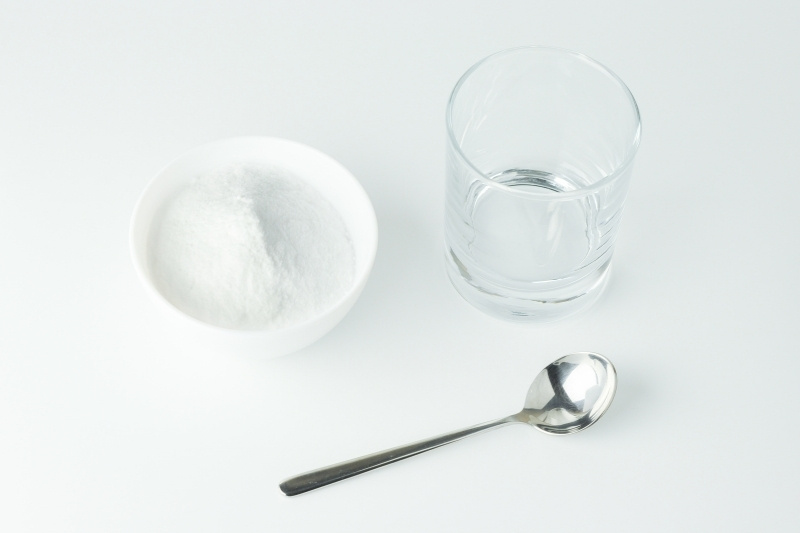
Just like with the lemon juice and salt: mix together a paste using bicarbonate of soda (baking soda) and white vinegar.
Smear this paste on the areas of the glassware that needs cleaning and leave to sit for around 10-15 minutes. Wipe away the excess and the mineral deposits should be gone!
Method 4: Toothpaste
Great for whitening teeth but also a great component in ensuring clean glasses. Take an old toothbrush and as you would with your teeth (maybe not as harshly) scrub the glassware on the areas you’re trying to target.
Afterwards, soak in soapy water (plus vinegar) before rinsing.
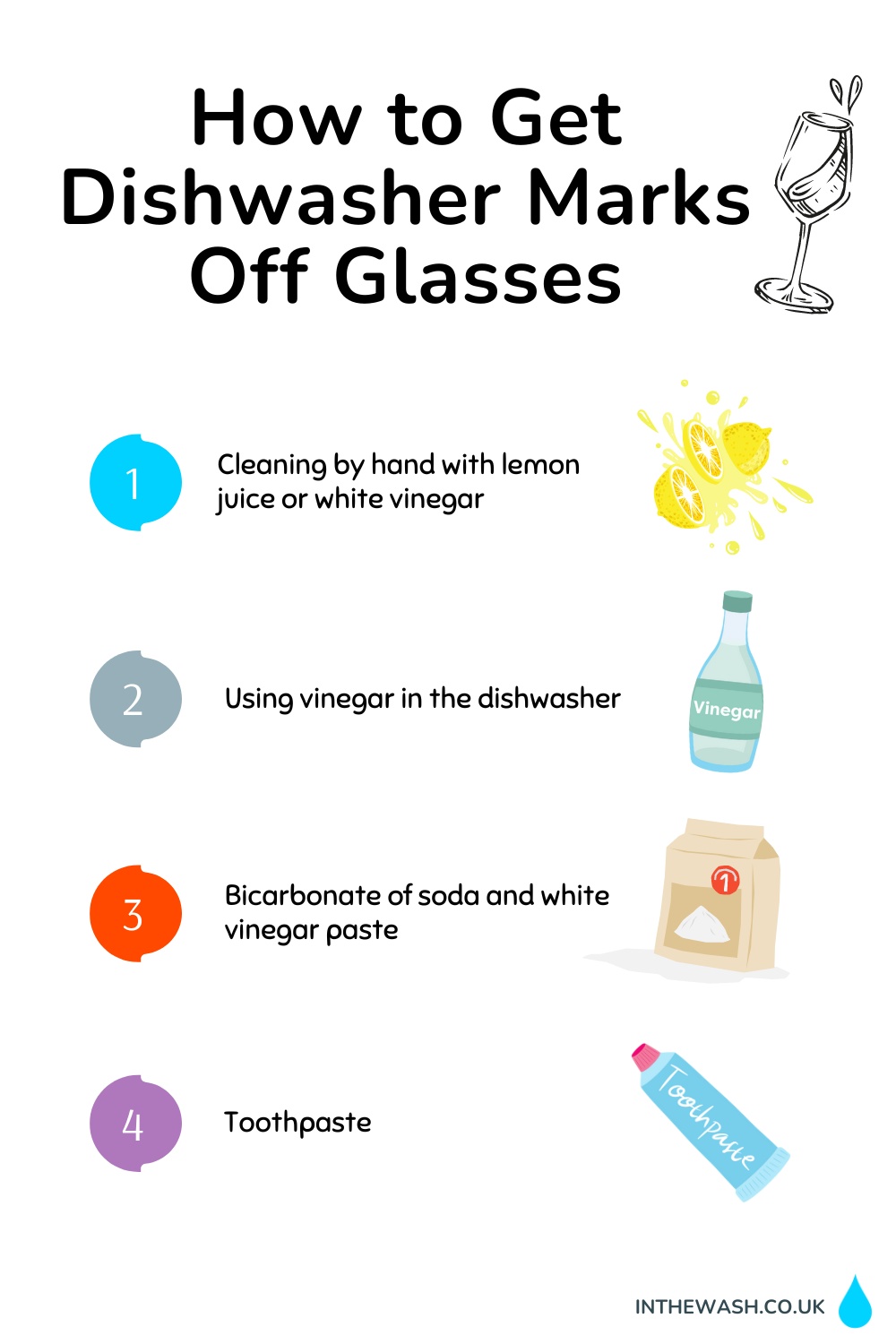
How to Prevent Dishwasher Stains on Glasses
Now that you know how easy it is to remove these stains, it may be tempting to keep this at the back of your mind until it happens again but, like most things, it’s better to tackle the issue at the source than to deal with it as and when they pop up. Here’s how to do just that:
1. Salt, salt, salt
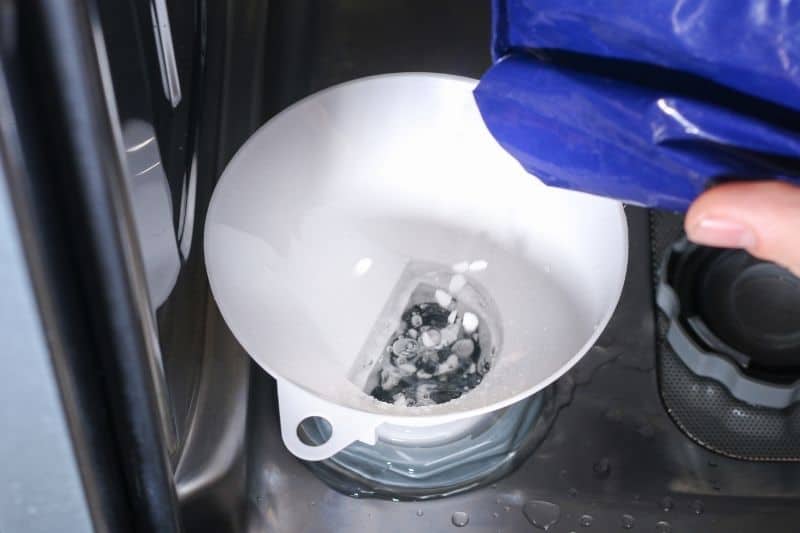
One reason why salt works so well to remove these limescale marks is because this is exactly what your dishwasher has, most likely, been missing.
Somewhere on your dishwasher there should be a salt indicator. Make sure you’re always on top of it and you’ll see a drastic improvement in the overall finish of your glassware.
2. Combat mineral deposits with dishwasher cleaner products
There are some great dishwasher cleaner products out there made to combat the limescale build up in your dishwasher.
Make sure you choose a commercial product that it specifically formulated to target this issue and use it as maintenance every few weeks.
3. Wash by hand if you don’t use glassware very often
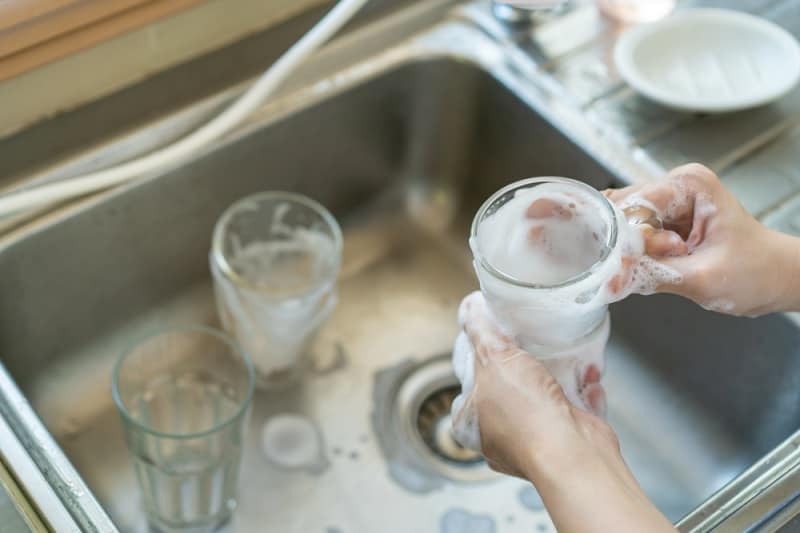
If you only use your glassware on special occasions, it might be worth simply washing all of your glasses by hand rather than in the dishwasher, as this avoids this problem completely. Just ensure you wash them thoroughly and polish them afterwards.
Overall, mineral build-up isn’t something to lose your head over but can be easily avoided using these tips. Do so and your glassware will be glistening like they were on the day of purchase!
Is the Problem Always Hard Water?
If the methods above don’t work for you, the etching on your glasses could be caused by your dishwasher detergent rather than hard water.
According to Tim Carter from Ask the Builder, cloudy or etched glasses can be the result of the combination of soft water, low soil load, high temperatures and chelating agents in dishwasher detergents.
Chelating agents soften water, but if your water is already soft to begin with, the effect is counterproductive and could make your glasses cloudy.
If you suspect this to be the case, try switching to a different dishwasher detergent, using shorter cycles and lower temperatures.
If nothing seems to work, you can always switch to washing glasses by hand instead!

In The Wash is your guide to the best laundry and cleaning products, tips and tricks. Our mission is to solve the UK’s cleaning and laundry dilemmas!
